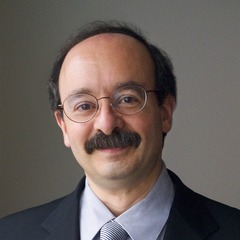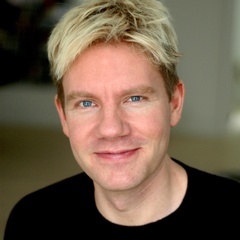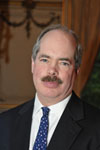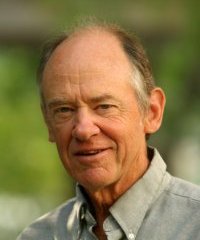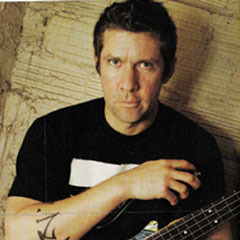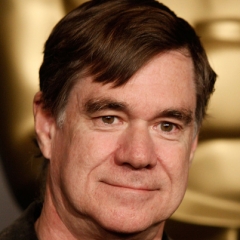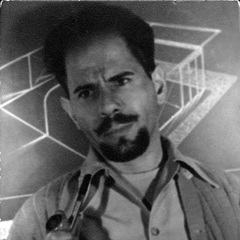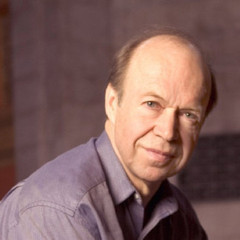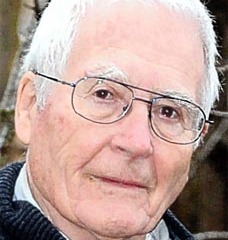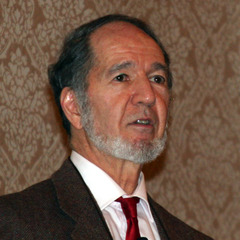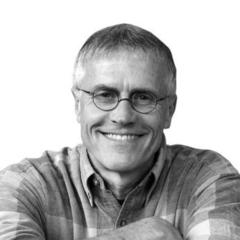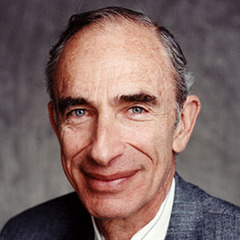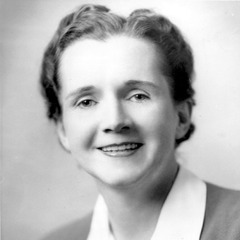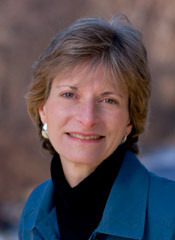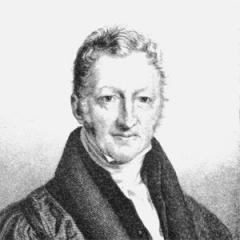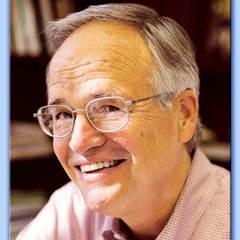Lester R. Brown quotes
-
“Saving civilization is not a spectator sport.”
-- Lester R. BrownSource : Lester R. Brown (2008). “Plan B 3.0: Mobilizing to Save Civilization (Substantially Revised)”, p.13, W. W. Norton & Company
-
“One way or another, the choice will be made by our generation, but it will affect life on earth for all generations to come”
-- Lester R. BrownSource : Lester R. Brown (2013). “Eco-Economy: Building an Economy for the Earth”, p.276, Routledge
-
“Our numbers expand, but Earth's natural systems do not.”
-- Lester R. Brown -
“We can build an economy that does not destroy its natural support systems, a global community where the basic needs of all the Earth's people are satisfied, and a world that will allow us to think of ourselves as civilized. This is entirely doable.”
-- Lester R. Brown -
-
“Rising oil prices have focused the world's attention on the depletion of oil reserves. But the depletion of underground water resources from overpumping is a far more serious issue. Excessive pumping for irrigation to satisfy food needs today almost guarantees a decline in food production tomorrow.”
-- Lester R. Brown -
“Among the environmental trends undermining our future are shrinking forests, expanding deserts, falling water tables, collapsing fisheries, disappearing species, and rising temperatures. The temperature increases bring crop-withering heat waves, more-destructive storms, more-intense droughts, more forest fires, and, of course, ice melting. We are crossing natural thresholds that we cannot see and violating deadlines that we do not recognize.”
-- Lester R. Brown -
“It takes 1,000 tons of water to produce 1 ton of grain. As water becomes scarce and countries are forced to divert irrigation water to cities and industry, they will import more grain. As they do so, water scarcity will be transmitted across national borders via the grain trade. Aquifer depletion is a largely invisible threat, but that does not make it any less real.”
-- Lester R. Brown -
“No civilization has survived the ongoing destruction of its natural support systems. Nor will ours.”
-- Lester R. Brown -
-
“Our early 21st century civilization is in trouble. We need not go beyond the world food economy to see this. Over the last few decades we have created a food production bubble-one based on environmental trends that cannot be sustained, including overpumping aquifers, overplowing land, and overloading the atmosphere with carbon dioxide.”
-- Lester R. Brown -
“Socialism failed because it couldn't tell the economic truth. Capitalism may fail because it couldn't tell the ecological truth.”
-- Lester R. Brown -
“The choice is ours-yours and mine. We can stay with business as usual and preside over a global bubble economy that keeps expanding until it bursts, leading to economic decline. Or we can adopt Plan B and be the generation that stabilizes population, eradicates poverty, and stabilizes climate. Historians will record the choice, but it is ours to make.”
-- Lester R. Brown -
“Saving Greenland is both a metaphor and a precondition for saving civilization. If its ice sheet melts, sea levels will rise 23 feet. Hundreds of coastal cities will be abandoned. The rice growing river deltas of Asia will be under water. There will be hundreds of millions of rising-sea refuges. The word that comes to mind is chaos. If we cannot mobilize to save the Greenland ice sheet; we probably cannot save civilization as we know it.”
-- Lester R. Brown -
-
“The throwaway economy that has been evolving over the last half-century is an aberration, now itself headed for the junk heap of history.”
-- Lester R. BrownSource : Lester R. Brown (2008). “Plan B 3.0: Mobilizing to Save Civilization (Substantially Revised)”, p.229, W. W. Norton & Company
-
“In today's integrated world economy, ... eradicating poverty may contribute as much to U.S. security as eradicating terrorism.”
-- Lester R. Brown -
“The 20th century was the time when the world turned to use of fossil fuels and the 21st century will be the century of the renewables.”
-- Lester R. Brown -
“Today, more than ever, we need political leaders who can see the big picture, who understand the relationship between the economy and its environmental support systems.”
-- Lester R. BrownSource : Lester R. Brown (2008). “Plan B 3.0: Mobilizing to Save Civilization (Substantially Revised)”, p.8, W. W. Norton & Company
-
-
“The challenge is either to build an economy that is sustainable or to stay with our unsustainable economy until it declines. It is not a goal that can be compromised. One way or another, the choice will be made by our generation, but it will affect life on earth for all generations to come.”
-- Lester R. Brown -
“In the Middle East, where populations are growing fast, the world is seeing the first collision between population growth and water supply at the regional level. For the first time in history, grain production is dropping in a geographic region with nothing in sight to arrest the decline. Each day now brings 10,000 more people to feed and less irrigation water with which to feed them.”
-- Lester R. Brown -
“We are witnessing the beginning of one of the great tragedies of history. The United States, in a misguided effort to reduce its oil insecurity by converting grain into fuel for cars, is generating global food insecurity on a scale never seen before.”
-- Lester R. Brown -
“In Mexico City, Tehran, Kolkata, Bangkok, Shanghai, and hundreds of other cities, the air is no longer safe to breathe. In some cities, the air is so polluted that breathing is equivalent to smoking two packs of cigarettes per day.”
-- Lester R. BrownSource : Lester R. Brown (2008). “Plan B 3.0: Mobilizing to Save Civilization (Substantially Revised)”, p.193, W. W. Norton & Company
-
-
“The transition from coal, oil, and gas to wind, solar, and geothermal energy is well under way. In the old economy, energy was produced by burning something -- oil, coal, or natural gas -- leading to the carbon emissions that have come to define our economy. The new energy economy harnesses the energy in wind, the energy coming from the sun, and heat from within the earth itself.”
-- Lester R. BrownSource : "Plan B 4.0: Mobilizing to Save Civilization". Book by Lester R. Brown, October 5, 2009.
-
“They have also been adopting fuel efficiency standards for automobiles in China.”
-- Lester R. Brown -
“The foundation is being laid for the emergence of both wind and solar cells as cornerstones of the new energy economy. World wind generating capacity grew from 7,600 megawatts in 1997 to 9,600 in 1998, an expansion of 26 percent. At a national level, Germany led the way, adding 790 megawatts of capacity, followed by Spain with 380 megawatts, and the United States with 226 megawatts. In the past, U.S. wind generating capacity was concentrated in California, but in 1998, wind farms began generating electricity in Minnesota, Oregon, and Wyoming, broadening the new industry's geographical base.”
-- Lester R. BrownSource : Lester R. Brown, Michael Renner (2014). “Vital Signs 1999-2000: The Environmental Trends That Are Shaping Our Future”, p.16, Routledge
-
“Nations are in effect ceding portions of their sovereignty to the international community and beginning to create a new system of international environmental governance.”
-- Lester R. Brown#Community Quotes #Environmental Quotes #Climate Change Quotes
-
-
“The foundation is being laid for the emergence of both wind and solar cells as cornerstones of the new energy economy.”
-- Lester R. Brown -
“In this era of tightening world food supplies, the ability to grow food is fast becoming a new form of geopolitical leverage. Food is the new oil. Land is the new gold.”
-- Lester R. Brown -
“If an economy is to sustain progress, it must satisfy the basic principles of ecology. If it does not, it will decline and eventually collapse. There is no middle ground”
-- Lester R. BrownSource : Lester R. Brown (2013). “Eco-Economy: Building an Economy for the Earth”, p.77, Routledge
You may also like:
-
Amory Lovins
Physicist -
Bill McKibben
Environmentalist -
Bill Mollison
Author -
Bjorn Lomborg
Writer -
Carol Vorderman
Host -
Ed Ayres
Writer -
Eric Avery
Musician -
Gus Van Sant
Film director -
Jacque Fresco
Futurist -
James Hansen
Professor -
James Lovelock
Scientist -
Jared Diamond
Scientist -
Leonardo DiCaprio
Actor -
Paul Hawken
Environmentalist -
Paul R. Ehrlich
Population Biologist -
Rachel Carson
Marine biologist -
Sandra Postel
Expert -
Thomas Malthus
Scholar -
James Gustave Speth
Lawyer
